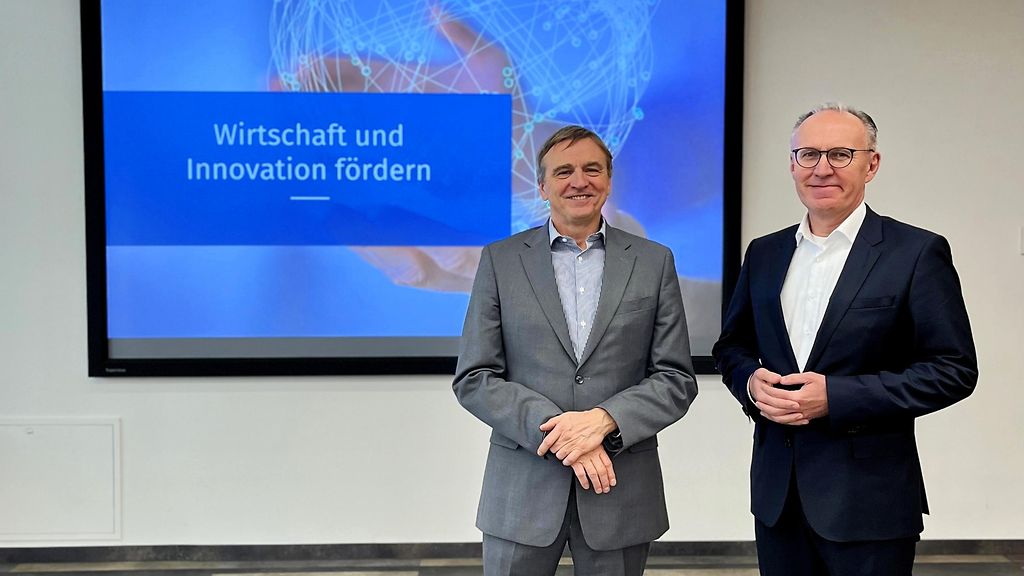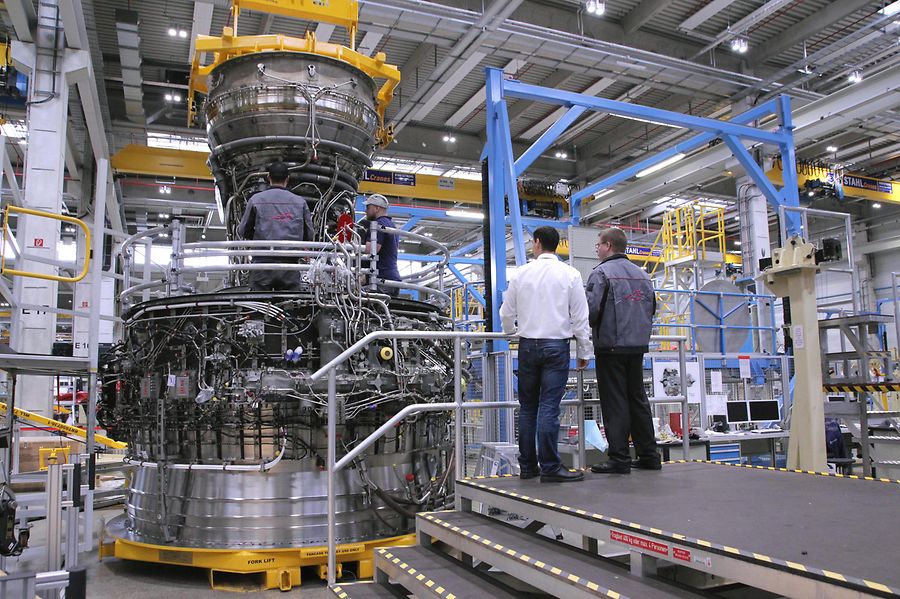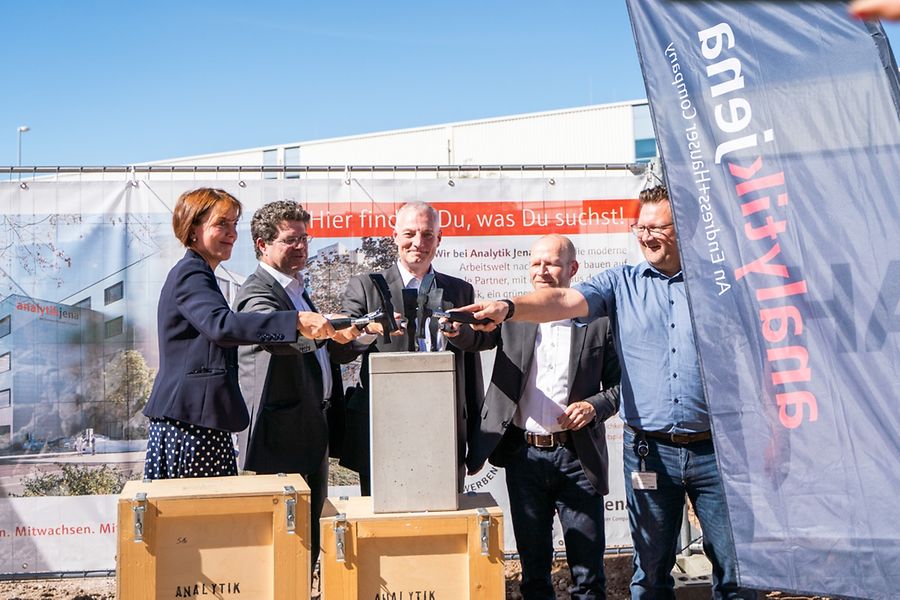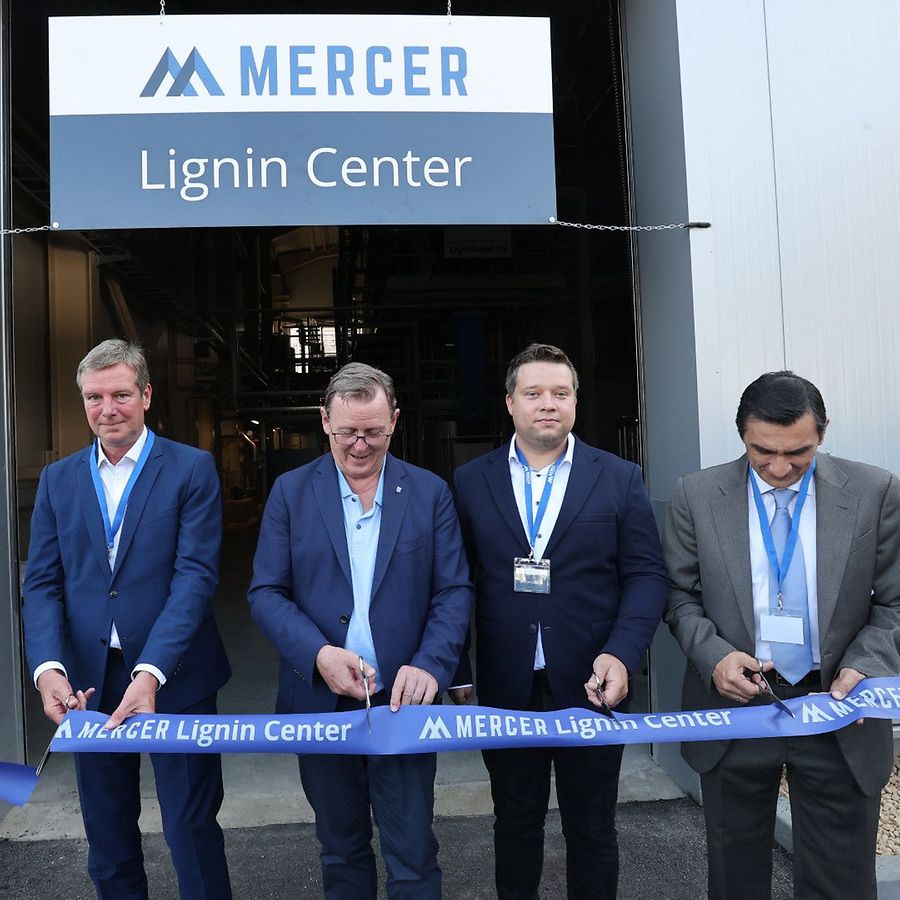
FDI
Top Investments in 2023 in Thuringia
Mar 04, 2024
Change at the top of Thuringia’s business promotion
For close to three decades, Dr. Arnulf Wulff has successfully headed the business promotion department of the State Development Corporation of Thuringia. His signature is all over LEG’s success story, which has created around 86,000 jobs and resulted in investments of around 13.8 billion euros. The expert taking the helm, Herbert Stütz, has many years of experience as head of the Investment Promotion team; he knows the business inside out and has been operating competently in the network for decades. The change will set the course for LEG’s continued successful economic development in the future.
Thuringia wins plaudits with versatile champions
Thuringia wins plaudits as a fertile ground for investment with many locational advantages – including the breadth of Thuringian companies that are world market or technology leaders in their sector. The companies were a particular focus of attention last year after the Thuringian Ministry of Economics and the State Development Corporation of Thuringia (LEG) launched a new campaign in March zooming in on the hidden champions in the state. To kick off the process, LEG identified almost 90 top-performing companies that are at the forefront of the market, including major players such as ZEISS or Jenoptik AG as well as many small companies. One of Thuringia’s strengths is its diverse SME landscape, which brings a dynamic mix of innovation and flexibility to the state’s economy. As a result, numerous corporate investments and research activities – from hidden champions and other companies – once again drove Thuringia’s economic development in 2023. A few examples are listed below:

Success story at the Erfurter Kreuz since 2007
N3 Engine Overhaul Services (N3) in Arnstadt, the joint venture between Lufthansa Technik AG and the British Rolls-Royce plc. for the overhaul and repair of Rolls-Royce Trent aircraft engines, is extensively expanding its building complex at the Erfurter Kreuz. Over the next two years, new factory areas will be constructed, existing buildings extended, machinery and equipment procured and new, flexible working methods introduced in the office areas. Around 150 million euros will be invested in the site and the number of employees will be increased from the current 900 to 1,200 skilled workers. The company’s capacity will be ramped up to overhaul 250 engines per year. This expansion project will further establish N3 as an important European location in the global maintenance network for Rolls-Royce aircraft engines.
QSIL invests heavily in the future
Having recently been named a “Hidden Champion”, the company has achieved considerable growth in recent years. Following investments in the acquisition of divisions of the H.C. Starck Group, QSIL, which specializes in high-performance materials for the semiconductor industry, is expanding its headquarters in Ilmenau. The foundation stone for the “Quarzschmelze 3” production building was laid in July. In the new building, state-of-the-art billet melters will produce billets, which are hollow cylindrical products made from quartz glass. The building will also house offices, machinery for further processing and logistics facilities for technical components and raw materials. Thanks to its combination of special properties, QSIL’s high-purity quartz glass is widely used in the semiconductor industry, mechanical engineering, chemical analysis and fiber optic applications. The expansion entails an investment of 20 million euros for the building and machinery. The company’s headcount has been steadily increasing in recent years and now numbers around 250 people in Ilmenau.

Analytik Jena – a new foundation for entrepreneurial success
The foundation stone for its new corporate campus was laid in September 2023 by Analytik Jena GmbH & Co. KG, a leading supplier of analytical instrumentation, molecular biology instruments, liquid handling and laboratory automation technologies. Together with its Swiss parent company Endress + Hauser, the company is investing 50 million euros in a modern building complex at its headquarters in Jena. By 2025, it will have created a total of 3,600 square meters of production and storage space and 2,300 square meters of laboratory space. There will be room for 550 employees at the site. Sustainability is writ large in this construction project, which includes eco-friendly features such as solar power, water and heat recovery, and green roofing. According to Managing Director Oliver Klaeffling, the company is now cre-ating a new broad foundation for further development and expansion.
Wago invests 50 million euros in northern Thuringia
WAGO Kontakttechnik GmbH, a supplier of connection and automation solutions, is investing in a new central warehouse in Sondershausen for worldwide shipping. “Sondershausen will be the gateway to the world,” WAGO’s CEO Heiner Lang recently announced. The family business is investing 50 million euros, the largest single investment in the company’s history. WAGO is not only expanding its existing warehouse in Thuringia but is also building a high-bay warehouse with cutting-edge technology on a 11,000 square meter site. Once the new warehouse goes into operation at the end of 2024, it will enable the processing of up to 12,000 orders per day. According to Heiner Lang, the company’s decision to bet big on Thuringia was largely due to all the available local expertise.

Mercer’s pilot plant for a sustainable circular economy
It is the first plant of its kind in Germany with an impact that goes far beyond the borders of Thuringia: Mercer International has opened a state-of-the-art Lignin Center with a capacity of 1,000 kilograms of high-quality lignin per day on the premises of Mercer Rosenthal GmbH in Rosenthal am Rennsteig. Lignin is a byproduct of the use of wood cellulose and a valuable raw material consisting of aromatic compounds that are normally extracted from crude oil. It is used to manufacture a wide variety of products such as plastics, medicines, paints, batteries and composite materials. This investment in the use of renewable resources is based on a close collaboration between the investor and universities, research institutions and other industrial companies and forms a basis for collaborations in the cutting-edge field of industrial bioeconomy across national borders. The center includes not only the plant but also storage facilities, on-site control rooms, offices and laboratory workstations; the operation is integrated into Mercer’s existing pulp mill at the Rosenthal site.
New Helmholtz Institute strengthens Thuringia as a research location
Thuringia already holds considerable potential in battery research and production – now another innovative building block is being added: The new “Helmholtz Institute for Polymers in Energy Applications” (HIPOLE) is being established at the science powerhouse of Jena. In the future, this research facility will identify ways to produce stationary storage units without using rare earths or hazardous substances. HIPOLE will make valuable contributions to the energy transition by developing materials and storage technologies.
The decision by the Senate of the Helmholtz Association to establish the new institute will expand the Helmholtz Association’s footprint as the largest German scientific organization in Thuringia. HIPOLE receives funding from the federal government (90 percent) and Thuringia (10 percent). Thuringia will also provide up to 14 million euros to cover the costs of the institute’s buildings and equipment in the start-up phase. The state had been laying the foundations for this success story since 2014, when it established the Center for Energy and Environmental Chemistry (CEEC) and thus developed deep expertise in energy storage in Jena. Researchers at HIPOLE will be combining research methods and findings in polymer chemistry, materials science and artificial intelligence (AI) with state-of-the-art analytical methods.
200 million euros for the new Friedrich Loeffler Institute in Jena
Cornerstone for high-level research: A new four-floor state-of-the-art building with laboratory and equipment space for the Friedrich-Loeffler-Institut (FLI) is being built in Jena at a cost of around 200 million euros. Completion is due in 2025. The FLI conducts research into farm animal health and welfare and the protection of humans from zoonoses at five sites in Germany. The two FLI institutes in Jena are the organization’s premier institutions for researching bacterial pathogens and their resistance to antibiotics. “Following the construction of new research infrastructure for the FLI’s virology-focused institutes at our headquarters on the island of Riems, the new building and add-on in Jena has set us on a forward-looking path to continue our important work on bacterial animal diseases and zoonotic pathogens. This makes the FLI one of the world’s most advanced research institutions in this field,” said Professor Thomas C. Mettenleiter, then-President of the Friedrich-Loeffler-Institut.
The new DATI Headquarter will pave the way for nationwide transfer and innovation
The German Federal Ministry of Education and Research (BMBF) has announced that the Deutsche Agentur für Transfer und Innovation (DATI) will be headquartered in Erfurt, based on recommendations from its founding commission. Minister Bettina Stark-Watzinger highlighted Erfurt's strategic location within a vibrant scientific region as crucial for fostering innovation. Dr. Stefan Groß-Selbeck, commission chair, emphasized the thorough selection process from over 68 potential locations, expressing confidence in Erfurt's suitability. The DATI aims to expedite the application of research findings nationwide, fostering innovation across technological and social fronts. It will operate with an innovative and flexible funding approach tailored to the specific needs and competencies within the country, offering comprehensive "transfer solutions." The commission, comprising 16 experts from diverse backgrounds including science, industry, startups, and government, will continue to advise on operational and strategic matters, ensuring a holistic approach to the agency's development and mission fulfillment.
LEG – the State Development Corporation of Thuringia supports companies and their investment projects from site search on and stay a strong and reliable partner even after project implemention. We will be happy to provide you with a full-service experience for everything you do in Thuringia.
www.invest-in-thuringia.de
And, yes, there is space available for your business idea here
